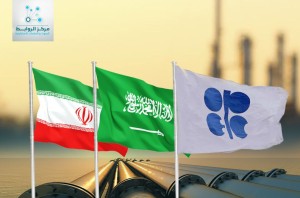The oil markets are in tug war now. It seems that oil prices still have a lot of surprises, and data , in which markets are experiencing changes in attitudes and productive policies amid of Saudi Arabia and Russian efforts to intervene to restore balance to the oil markets.
Recently oil prices are fallen as overwhelmed by the abundance of oil on the market and hopes faded to fix production in most of the observers.
The data of American Petroleum Institute has revealed a sudden increase in crude inventories in the United States last week, despite a drop in gasoline stocks that were declined sharply and the decline in distillate stocks.
During the last period , producing countries were unable to come to a decision to fix the production ceiling, and we noticed how the efforts of the producing countries were frequently failed starting from Doha meeting in the last April, but these countries are still trying to find a convergence formula of views between producers .
In a new development in this context, Iraq announced that it does not welcome to the decision to fix the production ceiling scheduled to be addressed at the informal meeting, which Organization of Petroleum Exporting Countries (OPEC) intends to hold it in Algeria in late next September and Russia will also attend it.
Iraq is seeking to increase its production, which currently stands at about 4.6 million barrels per day, noting that Iraq is due to put the budget of 2017 on the basis of $ 35 a barrel, and Iraqi Prime Minister Haider al-Abadi said Iraq does not welcome a limitation of ceiling for oil production because it has not recovered yet its complete share in the market.
It is indicated that Iraq sells crude with a price less than the world oil prices , which ranged from $ 50 a barrel.
As for Iran, which has always been a stand in front of any agreement on production since the end of international sanctions against it, but it has recently hinted to the possibility of cooperation with other producers around the world production to revive prices, according to Reuters news agency.
Tehran sees that its right to compensation for what was missing by years of isolation, while OPEC countries and other nations from outside the organization , productive of oil seek to make attempts to stop the deterioration of oil prices by some measures, including freezing the production ceiling at a certain level, but Iran refuses to do so, and Tehran has refused to participate in previous meetings of fixing the production levels, which collapsed, as it has said it wants first to increase its production to the levels before the Western sanctions to a four million barrels per day.
According to the International Energy Agency, Iran lifted oil production to 3.56 million barrels per day in April, a production level in November 2011 before narrowing sanctions on it .
Strenuous attempts by the producing countries of OPEC and outside of it to re-adjust oil prices, which in a state of tug of war since the collapse of prices in the summer of 2014, it has lost from its price more than 60% of its value, and now the price of a barrel of oil is exhausting the burden of rentier economies that adopt budgets on the price of raw .
Despite the divergent positions of the member states of OPEC and producers in general , the pessimism remains among many observers, especially with the absence of hopes to reach an agreement on the ceiling on the sidelines of the International Energy Forum in Algeria, and perhaps this case apply to the OPEC meeting in Vienna, and here the failure of agreement to determine the production ceiling may lead for a return to the quota conflict and raise the levels of production of some producers.
Amer Al-Omran
Translated by : Mudhaffar Alkusairi
Rawabet Center for Research and Strategic Studies

